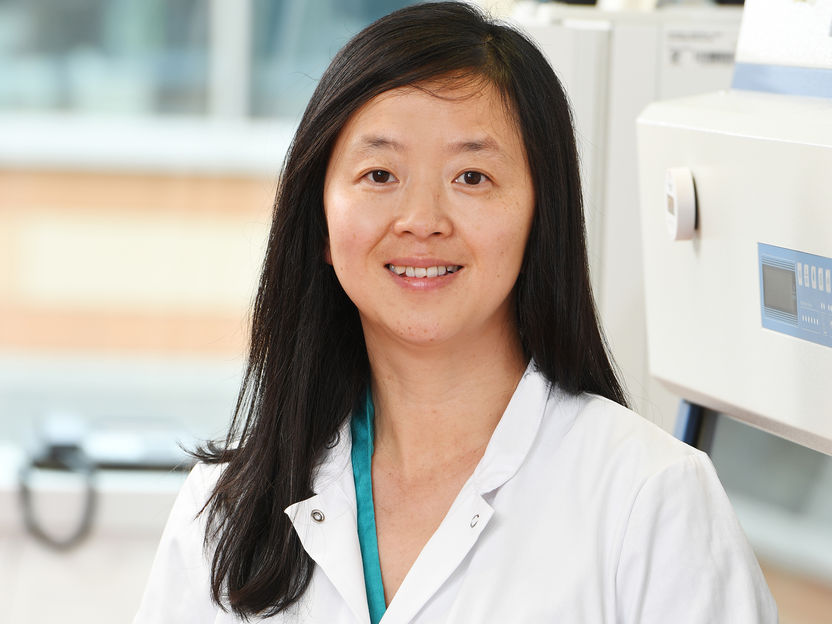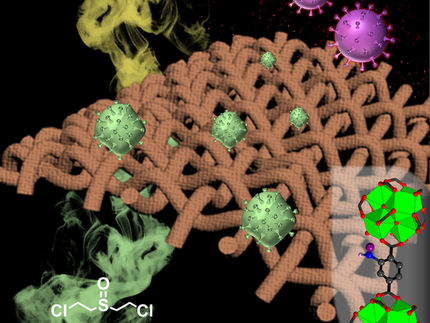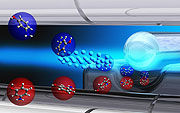Aerosol researcher Yafang Cheng honored by Falling Walls Science Breakthroughs of the Year 2021
Dr. Yafang Cheng has been selected as one of the 10 winners of the Falling Walls Science Breakthroughs of the Year 2021 in the category Physical Sciences for “Breaking the Wall to understanding Covid-19 transmission through aerosols”.

Dr. Yafang Cheng has been selected as one of the 10 winners of the Falling Walls Science Breakthroughs of the Year 2021 in the category Physical Sciences. The award ceremony will take place on 8-9 November 2021.
Carsten Costard
“Top-class researchers globally are pushing the boundaries to make some of the most important scientific breakthroughs of our times”, explains the Falling Walls Foundation on their web site. The Falling Walls Science Breakthroughs are to honor “internationally recognized, established academics and leaders in the observation and understanding of natural phenomena of the earth, atmosphere and space, whose groundbreaking work contributes towards solving the world’s biggest challenges.”
Dr. Cheng is heading a Minerva research group at the Max Planck Institute for Chemistry (MPIC) in Mainz. She and her team develop and apply innovative experimental methods and advanced modeling techniques to elucidate the formation, interactions, and effects of aerosols, which consist of fine liquid droplets or solid particles suspended in air.
The outstanding quality and relevance of Yafang Cheng’s research on the aerosol transmission of COVID-19 impressed the international Falling Walls jury, praised Prof. Dr. Jürgen Mlynek, chairman of the Falling Walls conference board of trustees, in his congratulatory letter. Yafang Cheng is one of ten scientists honored in this category this year. The award ceremony will take place on the Falling Walls Conference on 8- 9 November 2021 in Berlin. A glimpse of Yafang Cheng's award-winning work is provided in a video: Link https://falling-walls.com/breakthroughyear/finalists-2021//
Effective reduction of corona virus transmission
Dr. Cheng’s win was for her breakthrough in explaining how masks effectively limit the aerosol transmission of SARS-CoV-2 and help mitigate the COVID-19 pandemic. She recently published a study that explains how the effectiveness of face masks depends on different environmental conditions and has a population-wide impact on the course of the COVID-19 pandemic. The investigations were conducted in collaboration with colleagues from the Max Planck Institute for Chemistry, the Medical Center of the Johannes Gutenberg University Mainz, the Charité – Universitätsmedizin Berlin, and further partners from China and the USA. In this highly challenging, interdisciplinary and international project, the researchers used a variety of observational data and a novel approach to determine the infection risk of SARS-CoV-2 and the efficacy of masks on a population level.
“For the airborne transmission of SARS-CoV-2, we find that usually just a minor fraction of exhaled respiratory particles contains viruses. Most environments and contacts are under virus-limited conditions, where face masks, including simple surgical masks, have a high efficacy in preventing the spread of COVID-19”, explains Yafang Cheng, the head of a Minerva Research Group at the MPIC. “Our study provides a detailed and novel mechanistic understanding of population-average mask efficacy, which explains why regions with a higher percentage of the population wearing masks have better control of the pandemic.”
“The challenge we are facing now is not just if and how we can win the fight against this pandemic, but more importantly how fast we can do it in order to save more lives and reduce the probability of further dangerous mutations.” she adds. “Because of the higher mask efficacy at lower airborne virus concentrations, we can expect synergistic effects of combining masks with other measures such as ventilation, distancing, and vaccination. This is particularly important for potentially virus-rich environments, such as medical centers and crowded indoor settings, especially with more contagious variants of the virus.”
Ulrich Pöschl, director at the Max Planck Institute for Chemistry, agrees and confirms that “the insights gained in Yafang’s investigations constitute a major scientific breakthrough that will help to settle the ongoing debate about the usefulness of masks and promote efficient mitigation of the COVID pandemic.”
Multiple award-winning research
Recently, Yafang Cheng had already been awarded the Ascent Award of the American Geophysical Union, the Schmauss Prize of the Society for Aerosol Research and the Minerva Program of the Max Planck Society. She received these awards for her outstanding contributions to the understanding of atmospheric aerosol interactions and their effects on air quality and climate. In particular, Yafang Cheng and her research team achieved groundbreaking insights into solid-liquid phase transformations, chemical reactions, acidity and optical properties of airborne particulate matter and nanoparticles composed of carbon, organic substances, inorganic salts, and water.
The researcher has published over 120 papers in peer-reviewed scientific journals, including several articles in interdisciplinary highlight journals (Science, PNAS, etc.) and "hot papers" that are cited particularly frequently (Top 0.1%, Web of Science).
In addition, Dr. Cheng has been a steering committee member of the Exploratory Round Table Conferences (ERTC) of the Max Planck Society and the Chinese Academy of Sciences (CAS), and she collaborates closely with other leading researchers around the world.































































